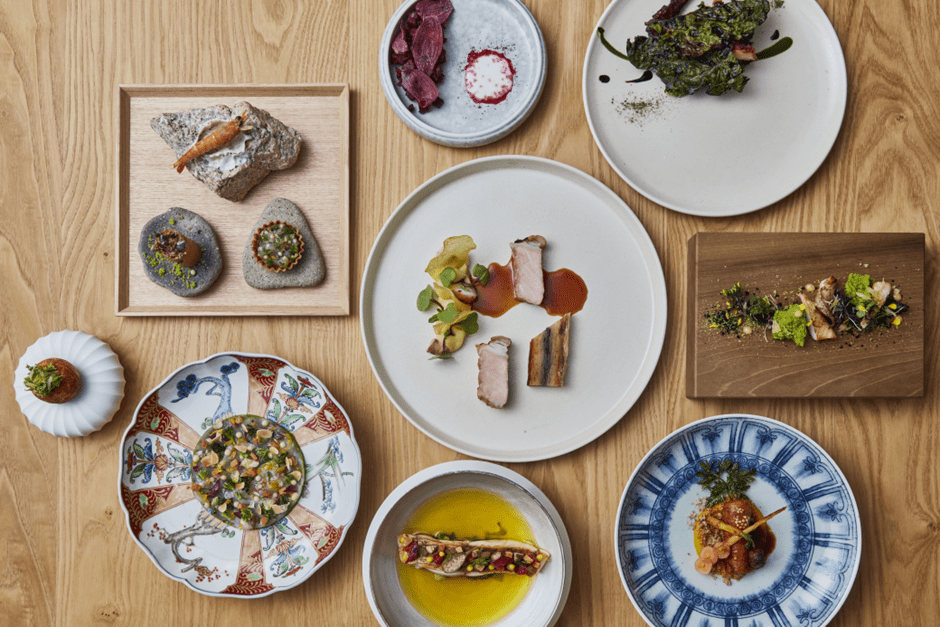Autumn is one of the most beautiful times of year to visit Japan, and it’s also the time of year that gastronomes-in-the-know choose to make their journey. This is a season of exceptional fish and seafood, of rare mushrooms and delicious fruits, with some items only being available for a matter of weeks. Head down to the Seto Inland Sea and its islands and you’re in for a culinary treat, served with a generous side helping of intriguing culture.
The Great Noodle Challenge – test your culinary talents at noodle school in Kagawa Prefecture
Whether you’re looking for a family challenge or a team-building activity to bring your work colleagues closer together, Kagawa Prefecture’s Nakano Udon School puts culinary talents to the test like no other. Thick, wheat-based udon noodles are a perennially popular dish across Japan, and in this fun, interactive class you’ll learn the secrets behind how to make them, from flour to final dish. And whether you take home the title of champion noodle-maker or not, finishing the class with a delicious bowl of handmade udon noodles to slurp means that everyone’s a winner here.
A gastronomic adventure on Awaji Island, where the food is fit for an emperor
A 90-minute drive from Osaka, approached by the Akashi Kaikyo bridge, the second-longest suspension bridge in the world, lies Awaji Island, a much-loved destination for gastronomes. The island is one of Japan’s three miketsukuni, lands considered since ancient times to produce food of suitably exceptional quality to grace the tables of the Imperial Court. Each season on Awaji Island brings different delicacies to look forward to. Visit in autumn and winter, when the cooler water temperatures make seafood particularly succulent, and you’ll be able to try Japanese spiny lobster, available in October and November, and blowfish, at its best from November to February. It’s also worth diving into the markets while you’re here to see – and taste – the sheer variety of locally sourced produce. Time your visit for the fourth Sunday of each and you’ll be able to head to the Uzushio Morning Market, held in Fukura Bay in the southern part of the island, and filled with limited-quantity seasonal items. Or head to one of the New Awaji hotels for multi-course seasonal menus featuring ingredients like fatty Kinshu conger eel, Momiji sea bream, and Awaji beef, regarded as some of the best in the world. It’s an autumn culinary journey not to miss.
Set sail on a sunset Cruise around the Setouchi Islands
The Setouchi Islands are known throughout Japan for their extraordinary beauty, and while there are plenty of places around Awaji Island to gaze on them from land, the best way to experience them is to get out on the water. Ferries connect most islands, but you can’t beat the flexibility of renting your own private cruiser for a Setouchi Island Cruise. Chart a course for the artistic island of Naoshima to see works by Yayoi Kusama, Hiroshi Sugimoto and David Hockney, sail over to Shodoshima to visit the quirky Soy Sauce Museum housed in a historical factory, or head out at sunset for a cruise around the islands when the colours are at their loveliest, and you can enjoy a dinner of freshly caught seafood onboard.
Stay at the design-driven Azumi Setoda hotel for a blend of tradition and modernity
On the little island of Ikuchijima, famous for its lemons, lies an extraordinary hotel that’s well worth making the journey south for. Housed in the 140-year-old former compound of the influential Horiuchi family, the 22 rooms of Azumi Setoda, each with private onsen-style bath, blend calming Japanese traditional design and materials like washi paper, local granite and cedar wood with the luxury that co-founder Adrian Zecha, the brains behind Aman Hotels, has made his signature.
But the hotel is about much more than design and comfort. Stay here and you’ll experience a true immersion into the culture and heritage of the region, with activities like Zen meditation, cultural walking tours, fishing, cycling and kayaking all on offer. The hotel also runs a traditional bathhouse, Yubune, across the street where you can enjoy the waters and the beautiful mosaic-tiled walls while you soak.
This is also a place to dive deep into the cuisine of the Setouchi region. At Azumi Setoda’s restaurant, as many ingredients as possible are sourced from within 50 kilometres of the hotel, ensuring a menu that embraces the true flavours of the region. With dishes served on antique plates from the former Horiuchi estate and local produce transformed with French culinary methods, a dinner here is one to remember for years to come.

